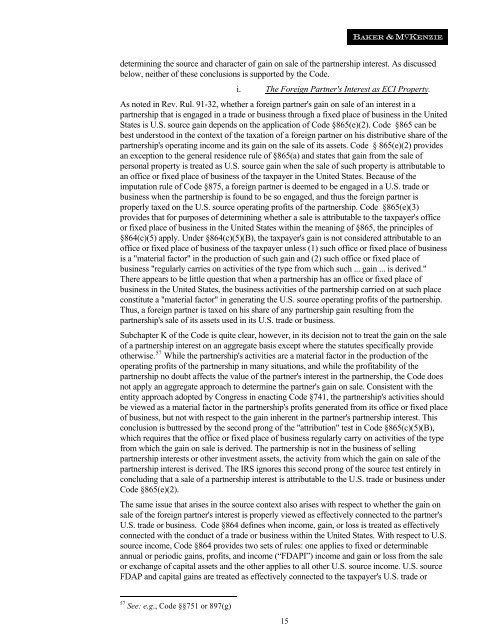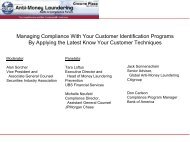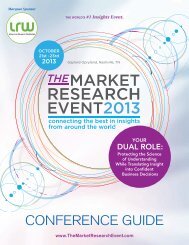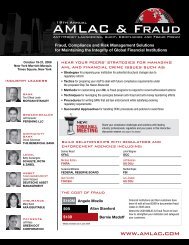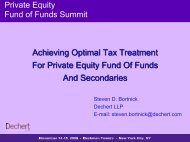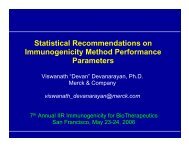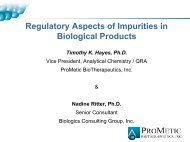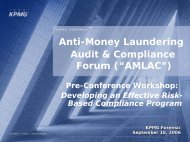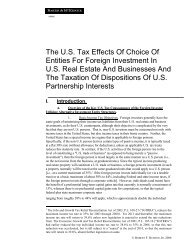The US Tax Effects Of Choice Of Entities For Foreign Investment - IIR
The US Tax Effects Of Choice Of Entities For Foreign Investment - IIR
The US Tax Effects Of Choice Of Entities For Foreign Investment - IIR
You also want an ePaper? Increase the reach of your titles
YUMPU automatically turns print PDFs into web optimized ePapers that Google loves.
determining the source and character of gain on sale of the partnership interest. As discussed<br />
below, neither of these conclusions is supported by the Code.<br />
i. <strong>The</strong> <strong>For</strong>eign Partner's Interest as ECI Property.<br />
As noted in Rev. Rul. 91-32, whether a foreign partner's gain on sale of an interest in a<br />
partnership that is engaged in a trade or business through a fixed place of business in the United<br />
States is U.S. source gain depends on the application of Code §865(e)(2). Code §865 can be<br />
best understood in the context of the taxation of a foreign partner on his distributive share of the<br />
partnership's operating income and its gain on the sale of its assets. Code § 865(e)(2) provides<br />
an exception to the general residence rule of §865(a) and states that gain from the sale of<br />
personal property is treated as U.S. source gain when the sale of such property is attributable to<br />
an office or fixed place of business of the taxpayer in the United States. Because of the<br />
imputation rule of Code §875, a foreign partner is deemed to be engaged in a U.S. trade or<br />
business when the partnership is found to be so engaged, and thus the foreign partner is<br />
properly taxed on the U.S. source operating profits of the partnership. Code §865(e)(3)<br />
provides that for purposes of determining whether a sale is attributable to the taxpayer's office<br />
or fixed place of business in the United States within the meaning of §865, the principles of<br />
§864(c)(5) apply. Under §864(c)(5)(B), the taxpayer's gain is not considered attributable to an<br />
office or fixed place of business of the taxpayer unless (1) such office or fixed place of business<br />
is a "material factor" in the production of such gain and (2) such office or fixed place of<br />
business "regularly carries on activities of the type from which such ... gain ... is derived."<br />
<strong>The</strong>re appears to be little question that when a partnership has an office or fixed place of<br />
business in the United States, the business activities of the partnership carried on at such place<br />
constitute a "material factor" in generating the U.S. source operating profits of the partnership.<br />
Thus, a foreign partner is taxed on his share of any partnership gain resulting from the<br />
partnership's sale of its assets used in its U.S. trade or business.<br />
Subchapter K of the Code is quite clear, however, in its decision not to treat the gain on the sale<br />
of a partnership interest on an aggregate basis except where the statutes specifically provide<br />
otherwise. 57 While the partnership's activities are a material factor in the production of the<br />
operating profits of the partnership in many situations, and while the profitability of the<br />
partnership no doubt affects the value of the partner's interest in the partnership, the Code does<br />
not apply an aggregate approach to determine the partner's gain on sale. Consistent with the<br />
entity approach adopted by Congress in enacting Code §741, the partnership's activities should<br />
be viewed as a material factor in the partnership's profits generated from its office or fixed place<br />
of business, but not with respect to the gain inherent in the partner's partnership interest. This<br />
conclusion is buttressed by the second prong of the "attribution" test in Code §865(c)(5)(B),<br />
which requires that the office or fixed place of business regularly carry on activities of the type<br />
from which the gain on sale is derived. <strong>The</strong> partnership is not in the business of selling<br />
partnership interests or other investment assets, the activity from which the gain on sale of the<br />
partnership interest is derived. <strong>The</strong> IRS ignores this second prong of the source test entirely in<br />
concluding that a sale of a partnership interest is attributable to the U.S. trade or business under<br />
Code §865(e)(2).<br />
<strong>The</strong> same issue that arises in the source context also arises with respect to whether the gain on<br />
sale of the foreign partner's interest is properly viewed as effectively connected to the partner's<br />
U.S. trade or business. Code §864 defines when income, gain, or loss is treated as effectively<br />
connected with the conduct of a trade or business within the United States. With respect to U.S.<br />
source income, Code §864 provides two sets of rules: one applies to fixed or determinable<br />
annual or periodic gains, profits, and income (“FDAPI”) income and gain or loss from the sale<br />
or exchange of capital assets and the other applies to all other U.S. source income. U.S. source<br />
FDAP and capital gains are treated as effectively connected to the taxpayer's U.S. trade or<br />
57 See: e.g., Code §§751 or 897(g)<br />
15


